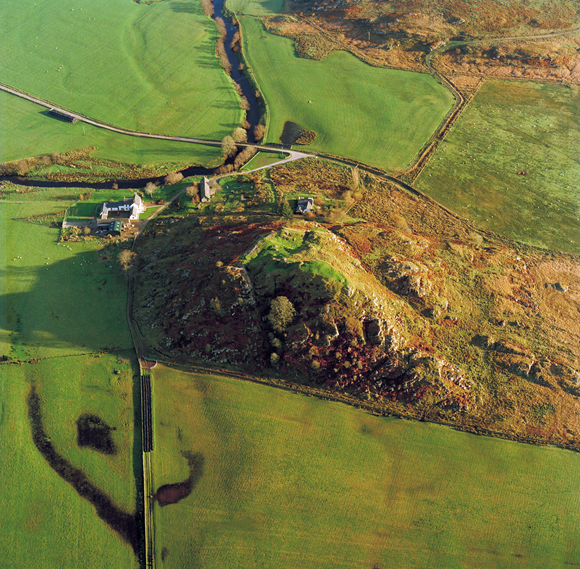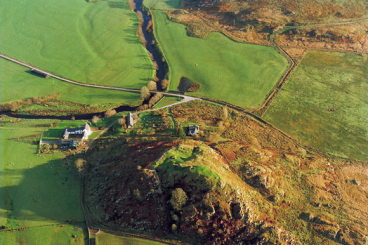Two Argyll men appeared at Dunoon Sheriff Court yesterday (June 23), charged with illegal metal detecting and excavation at Dunadd Fort – a site of historical and national significance.
Andrejs Grisulis, (35) of Kinlochleven, and Matthew Madden, (55) of Fort William, were both given a six-month Community Payback Order, with 80 hours of unpaid work needing to be completed in that time.
The two were found to have disturbed 35 separate areas at Dunadd, after investigations conducted by Historic Environment Scotland (HES).
Dunadd, near Lochgilphead, is a royal power centre of Gaelic kings dating from 800 BC. It has been a legally protected site for 90 years.
Out of the 35 areas damaged by digging holes, 22 no longer contained metal items which may have caused metal detectorists Grisulis and Madden to dig at those spots. Police Scotland eventually seized an iron hammerhead, which the court heard had been retrieved from this excavation.
Sheriff Nicola Patrick advised that £30,000 worth of damage was caused by the two, saying that an area of ‘archaeological and historic importance’ has been wrongly tampered with.
However, both Grisulis and Madden avoided custodial and financial penalties, instead of receiving 80 hours of unpaid work, alongside a ban from all Historic Environment Scotland sites for two years, and forfeiture of metal detecting equipment.
Defending, Graeme Wright told the court the pair disputed the amount of damage and the cost.
Historic Environment Scotland welcomed the sentencing of ‘irreversible damage’ of one of Scotland’s most important early medieval monuments.
Oliver Lewis, senior ancient monuments officer at HES, said: “We welcome the court’s decision which reflects the seriousness of the offence and the impact that it has had on one of Scotland’s most important archaeological sites.
“Heritage crime is a serious matter which can irreparably damage our monuments and cultural assets as well as our proud historical connections to the past. HES is committed to investigating incidents of damage to scheduled monuments and we will continue to work closely with Police Scotland and the Crown Office and Procurator Fiscal Service (COPFS) to protect Scotland’s historic environment.”
Police Inspector Alan Dron, Police Scotland rural crime coordinator and chair of the Scottish Heritage Crime Group, added: “Illegal metal detecting is a serious offence which can result in significant harm and loss to Scotland’s historic past. The detection and prosecution of these offences at Dunadd have been the result of a concerted effort by the Police, the Crown Office and Historic Environment Scotland, to ensure that we continue to protect that history and preserve it for generations to come.”
Dunadd is a complex multi-phase site with evidence of human use dating from around 3000BC to at least AD1500. It is best known and internationally renowned as being the royal centre and capital of the Gaelic kings of Dál Riata from about AD 500 to AD 800.







